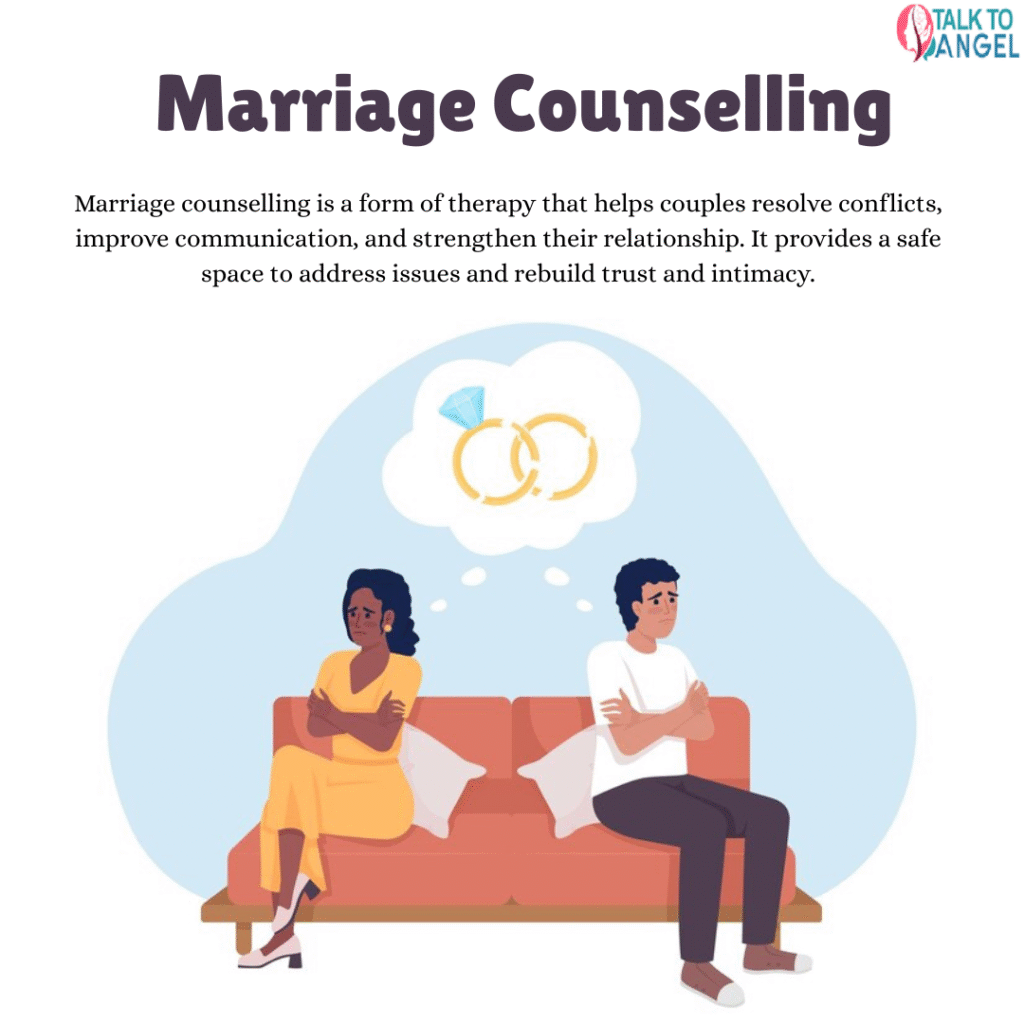When couples encounter challenges in their relationship, they often wonder whether they should seek marriage counselling or individual therapy. At first glance, both options may seem similar — after all, they both involve talking to a therapist. However, marriage counselling and individual therapy serve different purposes and are structured differently. Understanding these differences can help you choose the right form of support for your specific needs.
The Core Difference: Who is the Client?
In individual therapy, the individual is the client. The focus is on the person’s emotions, behaviours, thought patterns, personal history, and mental health issues. Whether someone is dealing with anxiety, depression, trauma, or self-esteem issues, individual therapy provides a safe space to explore and heal.
As a result, a relationship serves as the client in marriage counselling online. Enhancing couple dynamics, encouraging communication, resolving disputes, and restoring trust are the main objectives. Both partners attend sessions together (though sometimes separate sessions may occur initially), and the psychologist counselling them works to understand how their interactions affect the relationship as a whole.
Focus Areas in Therapy vs Counselling
Individual therapy may touch upon relationship issues, but its broader focus is the personal growth and emotional well-being of the individual. For example, someone might explore how their childhood influences their current attachment style or why they tend to withdraw during conflict.
Contrarily, marriage counselling emphasises the daily activities of the partnership. The therapist observes how partners communicate, argue, make decisions, and show affection. Tools like active listening, conflict resolution techniques, and emotional validation are commonly used. The goal is often to develop healthier ways to relate to one another, whether the couple stays together or parts ways amicably.
Can One Replace the Other?
The short answer is no. While there is overlap between marriage counselling and individual therapy, such as discussing emotional triggers or coping strategies, one cannot fully substitute one for the other.
For instance, if one partner struggles with deep-seated trauma or a mental health disorder such as depression or anxiety, individual therapy with a psychologist counsellor is likely more appropriate to address those personal issues. At the same time, if these personal struggles are affecting the relationship (as they often do), marriage counselling online or in-person could help both partners understand and cope with the impact together.
In many cases, doing both in parallel is the most effective approach. One partner may work on personal healing in individual therapy while both attend marriage counselling sessions to address the relationship.
Role of the Counsellor or Psychologist
In both settings, a trained professional facilitates the therapeutic process. However, the approach and techniques differ:
- A psychologist counselling individuals may use cognitive-behavioural therapy (CBT), psychodynamic therapy, or mindfulness strategies to help them process thoughts and feelings.
- In marriage counselling, therapists often use approaches like Emotionally Focused Therapy (EFT), the Gottman Method, or systemic family therapy to address relational dynamics.
It is important to keep in mind that not all therapists have been trained in both areas. A person with training in solo therapy might not be an expert in couples therapy. That’s why it’s crucial to seek a psychologist counselling expert with experience in marriage counselling if your goal is to work on your relationship.
The Rise of Marriage Counselling Online
As teletherapy has advanced, online marriage counselling has become more accessible and popular. Couples who are geographically separated, have busy schedules, or prefer the privacy of their home can now attend sessions via video conferencing.
Online platforms also make it easier to find a specialist in marriage counselling or psychologist counselling who suits your needs, regardless of where you live. Many couples report that virtual sessions are just as effective as in-person ones, especially when both partners are committed to the process.
When to Choose Which
Here’s a quick guide to help you decide:
- Choose individual therapy if:
- You’re struggling with personal trauma, anxiety, depression, or addiction.
- You want to understand your triggers or behaviour patterns.
- You’re unsure about staying in the relationship and need space to reflect.
- Choose marriage counselling if:
- You and your partner are having frequent conflicts or communication breakdowns.
- There’s been a breach of trust (e.g., infidelity, dishonesty).
- You want to strengthen your connection and prevent future problems.
Remember, starting with one form doesn’t mean you can’t add the other later. Many people find the best results when both are integrated over time.
Final Thoughts
While marriage counselling and individual therapy may share the goal of improving well-being, they take different routes to get there. Understanding that one focuses on the individual and the other on the relationship can help you make an informed decision. Whether you choose traditional sessions or marriage counselling online, the most important step is reaching out for help. With the guidance of a qualified professional in psychologist counselling, both individuals and couples can navigate their challenges and move toward a healthier future.





